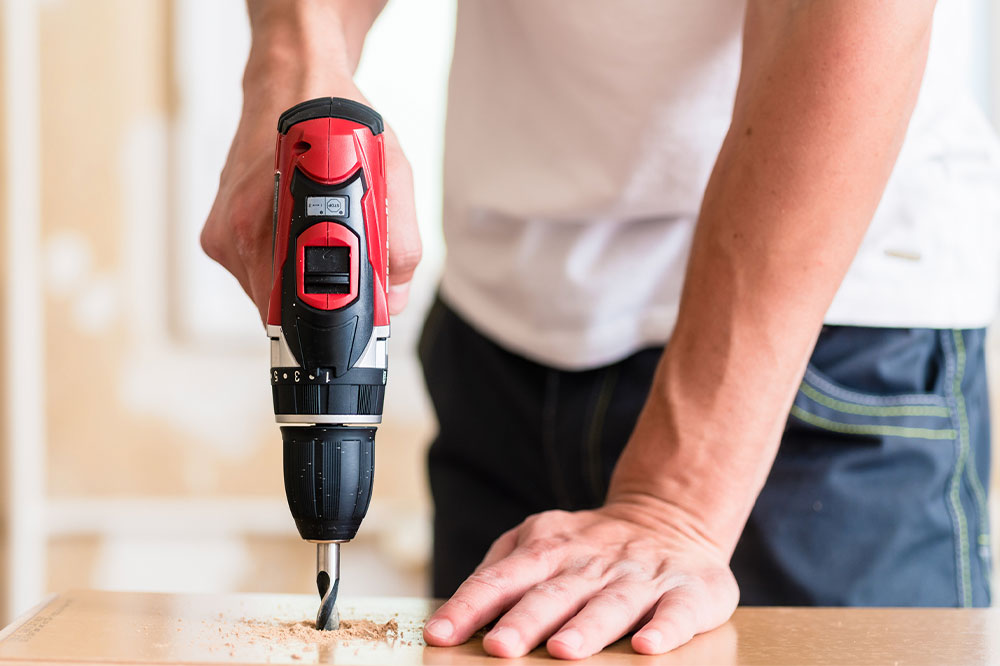5 must-have power tools for DIY-ing
Have you ever found yourself staring down an unfinished kitchen with the contractor working at a nightmarishly slow pace? Worse still, the workers may not always show up on time or could delay in completing the project, leaving you with a leaky kitchen sink, flooded basement and wasted money. Finding a great contractor who doesn’t overcharge, finishes his work on time and understands the job at hand completely, puts you in the lucky one percent of the population. Here’s where DIY-ing could help you out. Why trust a complete stranger when you can renovate and fix stuff yourself? DIY isn’t the trial-and-error experience it used to be.

If you are a beginner DIY-er, being apprehensive about undertaking a home improvement project for the first time is completely normal. You don’t want to save a few bucks; botch up the task and then spend a ton to get it fixed! But, with your perennial pal, the Internet, you can find a plethora of reliable step-by-step guides and set out as a serious home DIY-er.
So, to help you in your quest to DIY and save yourself some heartburn over overcharging contractors, we’ve listed 5 power tools you must have. With these and the right guide in your hand, you’ll be one step closer to remodeling your home or even just fixing it up just the way you want and without burning a hole in your pocket.
Cordless drill
From attaching shelves to hanging up pictures or curtain railings to screwing on a bolt to steady a wobbly table, a cordless drill is what you will need. Cordless, because you don’t want to be restricted to a power source. But, you must ensure to check the requirements before using this drill. It cannot be used to drill into concrete or other hard surfaces—for that you will have to use a hammer drill instead.
Nailer
Your tool kit is basically incomplete without a nailer. A must-have power tool for DIYers, the nailer can be used for accomplishing tasks like making a plywood storage unit, fixing a wooden bench and even installing picture rails. Though it can be a bit expensive, it is a tool that is quite basic and handy. You do need to know though, that using a Nailer like any other tool can be a bit dangerous – 42000 people end up in the ER every year with nail gun injuries.
Table saw
Like with other efficient tools, a table saw is just as important for a DIYer. A lot of people assume that getting a circular saw could help complete the task at hand, but, if you own a table saw , you can simply set the table according to the desired measurements. Rest assured all pieces will be cut to exactly the same size. This makes it worth every penny you would spend on it. From an under-window bookcase or setting up a rustic-looking pot rack, a table saw makes it fairly easy to accomplish.
Sander
DIY home improvement projects do require a lot of woodworking, and once you’ve got a sander , you can bid adieu to rough patches on the wooden surface. Smoothening wooden surfaces manually, with sandpaper, can get extremely tiring and be time-consuming. Using a sander saves you hours of work that you would normally invest in, to sand down the surfaces. To add to that, it’s super easy to use. All you need is the right sandpaper and voila! you’re good to go.
Router
The mere versatility of this power tool makes it an essential addition to every toolbox. A comparatively simpler tool than a hand chisel, a router can accurately and quickly help cut dovetails and mortises. Need to trim a plastic-laminated kitchen countertop or shape a wooden bench – with a router , you can complete such projects with ease.
Having these handy tools can make your weekends so much more interesting and of course save money, but truth be told, one of the reasons people employ contractors is they don’t know where to begin! Need to install a widescreen TV on the wall? Want to find a leaky pipe? Can hear rodents running around inside walls? In either of these cases, you would need to get in a professional to know exactly where to start. You don’t want to install your expensive TV on drywall, do you? Or burst some more pipes trying to find the leaky one? Or make more avenues for mice to get in? To help those looking to make renovations and other changes to their house a product that can be handy is the Walabot DIY . All you need is an Android phone to load this 3D wall sensor on to. It uses radio frequency to detect what’s behind the walls and is quite helpful in tasks where you need to know what exactly is happening behind your walls. The device works smoothly on any Android phone running Android 5.0 and above; comes with a Type-C OTG cable; a micro USB OTG cable; a gel pad; protective film and a quick start guide. You won’t have to tap the walls to guess where the studs are anymore. The device can detect plastic and PVC, metal, insulation, pests and cables. It can see 4-inches into your walls and can look through concrete and drywall alike.
DIY-ing can be a cathartic experience and if you have the right tools and know-how, it can be a money-saving one too!

